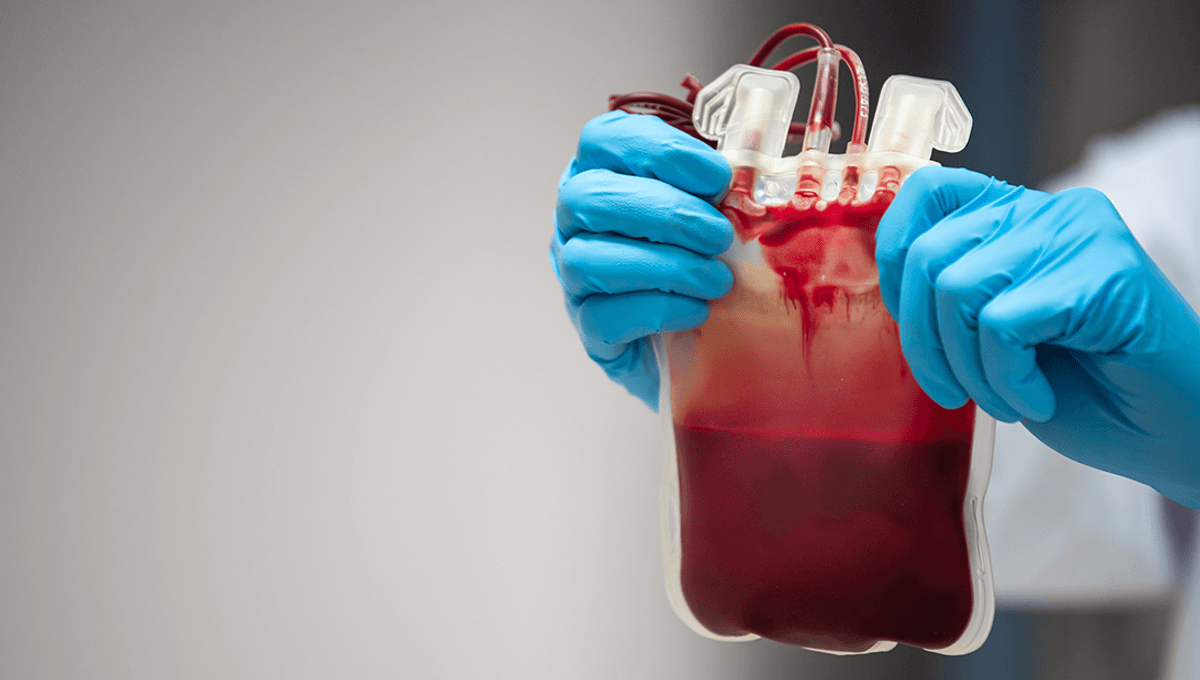
James Harrison – also known as the “man with the golden arm” – died in his sleep on Monday, February 17, in a nursing home in New South Wales, Australia, aged 88.
ADVERTISEMENT
When Harrison was 14 years old, he underwent major chest surgery, requiring an impressive 13 liters of transfused blood to keep him alive. During his three-month recovery, he decided he wanted to redress the balance book, donating his own blood the moment he turned 18.
Despite not liking needles, he began donating his blood in 1954. Soon, it was realized that Harrison’s blood contained a rare type of antibody especially sought after by healthcare professionals.
“Every bag of blood is precious, but James’ blood is particularly extraordinary,” Jemma Falkenmire, of the Australian Red Cross Blood Donor Service, told CNN when Harrison retired from donations in 2018. “His blood is actually used to make a life-saving medication, given to moms whose blood is at risk of attacking their unborn babies.”
Blood comes in different groups, with the main ones being A, B, AB, and O. These are further divided into Rhesus (Rh) positive or Rh negative, based on whether the blood contains the RhD antigen. While generally, you do not need to worry about your blood type, it can be a problem during pregnancy if you and the fetus have different Rh factors. If the fetus is Rh positive and you are Rh negative, it can lead to Hemolytic Disease of the Newborn (HDN). This is a problem when blood cells mix, for example as the placenta breaks away, during prenatal tests, miscarriages, or falls.
“The Rh negative mother’s immune system sees the baby’s Rh positive red blood cells as foreign. Your immune system responds by making antibodies to fight and destroy these foreign cells. Your immune system stores these antibodies in case these foreign cells come back again. This can happen in a future pregnancy. You are now Rh sensitized,” Stanford Medicine explains.
ADVERTISEMENT
“Rh sensitization normally isn’t a problem with a first pregnancy. Most problems occur in future pregnancies with another Rh positive baby. During that pregnancy, the mother’s antibodies cross the placenta to fight the Rh positive cells in the baby’s body. As the antibodies destroy the cells, the baby gets sick. This is called erythroblastosis fetalis during pregnancy. Once the baby is born, it’s called HDN.”
The disease can cause all sorts of issues, including problems with the liver and spleen, brain damage, and sometimes death of the fetus.
“Historically, HDN was one of the major causes of infant mortality and lifelong severe disability in our population,” Robert Flower, transfusion scientist at the Australian Red Cross Blood Service, explained to the Sydney Morning Herald in 2017. “It was a terrible, terrible condition.”
In the 1950s, scientists discovered the cause behind HDN, and in the 1960s they came up with a treatment; created with the antibody that caused the disease in the first place. Injecting mothers just enough means that any Rh-positive blood cells that made their way from the fetus to the mother would be dealt with, without the mother’s immune system attacking the fetus’s cells.
ADVERTISEMENT
Harrison was producing this anti-D antibody in impressive quantities. “Very few people have these antibodies in such strong concentrations,” Falkenmire explained to the Sydney Morning Herald in 2018. “His body produces a lot of them and when he donates his body produces more.”
When Harrison learned that his blood could be used to save the lives of babies at risk of HDN, he began donating as often as he could, giving plasma once every fortnight until he was 81 years old. By the time he had to stop donating, he had given blood 1,173 times, saving an estimated 2.4 million babies.
Following his death on Monday, his daughter Tracey Mellowship said in a statement that her father was “very proud to have saved so many lives, without any cost or pain,” adding, “he always said it does not hurt, and the life you save could be your own.”
“James was a remarkable, stoically kind, and generous person who was committed to a lifetime of giving and he captured the hearts of many people around the world. It was James’ belief that his donations were no more important than any other donors’, and that everyone can be special in the same way that he was,” Lifeblood Chief Executive Officer Stephen Cornelissen AM said.
ADVERTISEMENT
“James extended his arm to help others and babies he would never know a remarkable 1173 times and expected nothing in return. He continued to donate even in his darkest days, after the passing of his wife Barbara, who was also a blood donor, and helped inspire his career as a lifesaver. He leaves behind an incredible legacy, and it was his hope that one day, someone in Australia would beat his donation record.”
“On behalf of Lifeblood, and the entire Australian community, we thank James for the incredible life-saving contribution he made and the millions of lives he saved.”
Source Link: Man Whose Blood Saved 2.4 Million Babies Dies Aged 88